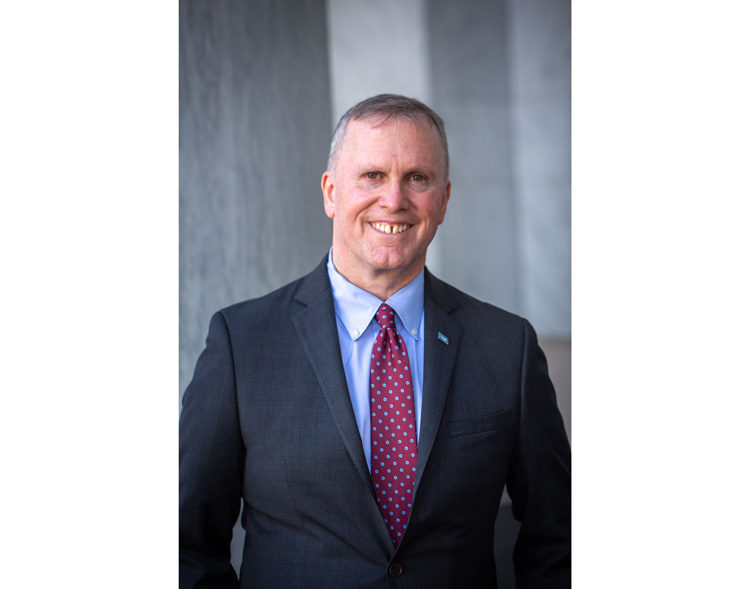Developing LGBTQ-affirming housing, implementing protections and advocating at the federal level can help serve this growing demographic.
By Michael Adams, SAGE
Due to lifetimes of discrimination, LGBTQ+ elders face unique challenges that have only begun to be addressed by communities across the country. They’re confronted with significant negative disparities across areas related to physical and mental health, and are more likely to face poverty, be homeless, and grow old alone and isolated.
As LGBTQ+ elders continue to face disproportionate rates of mistreatment, one of the most significant concerns for this community is housing, which can be correlated to LGBTQ+ elders’ increased risk of poverty.
Nearly one-third of LGBTQ+ elders ages 65 and older live at or below 200 percent of the federal poverty level, compared to a quarter of non-LGBTQ+ older people. This percentage rises to 40 percent of LGBTQ+ people age 80 and older.
In addition, LGBTQ+ elders often experience discrimination — by property managers, staff, other residents or service providers — when seeking rental and seniors housing.
According to an Equal Rights Center report, 48 percent of older same-sex couples applying for seniors housing were subjected to discrimination.
Fortunately, there are many steps developers can take within their communities to ensure LGBTQ+ elders have access to affordable, quality, and welcoming housing.
Develop more affordable housing
One housing intervention for LGBTQ+ older people is the creation of LGBTQ-affirming elder housing. As previously mentioned, the need for affordable housing options in older age is underscored by the financial insecurity that LGBTQ+ people face throughout their lives.
Welcoming and affordable elder housing is life-changing for LGBTQ+ elders, and many community-
based organizations express interest in building them. Nonetheless, only a few communities across the country offer this kind of housing, with not enough rooms to meet demand. For instance, when applications opened for New York City’s first affordable housing property for LGBTQ+ older adults, more than 1,000 people sent theirs in on the first day, speaking to the dire need for such facilities.
For developers looking to build these types of communities, consider the following:
• Assemble a development team that is experienced in creating “aging in place” communities.
• Develop an outreach strategy to secure buy-in from community leaders and politicians.
• Consult experts on LGBTQ+ elders’ needs in homes and shared community spaces.
• Arm the development team with key talking points and data to help navigate any pushback.
• Map out a detailed marketing strategy from the beginning through the lease-up process.
• Ensure all efforts are intentional and align with Fair Housing Act regulations.
Implement community protections
For older adults, housing — even affordable housing — is often geared toward conventional families.
When older adults look for housing services, they’re often asked traditional questions about marriage, children, husbands and wives, fathers and mothers. This often makes LGBTQ+ elders feel pressured to hide their identity to avoid discrimination. In fact, 34 percent of LGBTQ+ older adults worry about having to hide their identity in order to access seniors housing.
Putting the proper protections and policies into place ensure LGBTQ+ elders can obtain and safely live in affordable and supportive housing includes the following:
• Ensure that the non-discrimination policy includes sexual orientation, gender identity and gender expression. Post a version of the policy, written in plain language, in building entryways, on the website or in new-tenant materials.
• Demonstrate dignity and respect for LGBTQ+ people by asking what gender pronouns the individual prefers. This demonstrates a cultural competency and sensitivity to their needs.
• Advertise services in local LGBTQ+ media and make it clear on the website and promotional materials that the community is affirming and/or has experience working with LGBTQ+ people.
Housing communities should also train staff on LGBTQ+ cultural competency. This training should include a discussion of appropriate terminology, the history of the LGBTQ+ experience and the unique range of cultural expression among LGBTQ+ older adults.
Cultural competency also helps LGBTQ+ elders feel more welcomed and overcome social isolation caused by both discrimination and the fact that they usually have thinner family support networks than other older people.
Advocate for federal protections
Building more LGBTQ-affirming places around the country will help, but it’s not the only solution. Existing elder housing facilities across the country must reform their practices and policies to create welcoming environments. Laws and policies must change to protect LGBTQ+ elders from housing discrimination.
While there has been an increase in LGBTQ+ support and protections over the years, the fear and repercussions of the lack of anti-discrimination laws in more than half the country are still real.
Currently, there is no federal civil rights law for LGBTQ+ people. Without comprehensive, federal-level protections, half of all LGBTQ+ older adults in the U.S. live in a state where they can be legally denied access to housing, services and other public accommodations. This is why immediate passage of the Equality Act by Congress is so important.
With LGBTQ+ older adults in the U.S. expected to grow to around 7 million by 2030, elders seeking housing shouldn’t have to fear the outcome of being their true selves. At SAGE, we hope that all housing developers want LGBTQ+ residents to feel comfortable and safe in their community.
With the appropriate policies, training, and inclusivity, LGBTQ+ elders can feel welcomed within all housing communities, so they can age successfully and with dignity.
Michael Adams is the CEO of SAGE, the world’s largest and oldest organization dedicated to improving the lives of LGBTQ+ older people.

